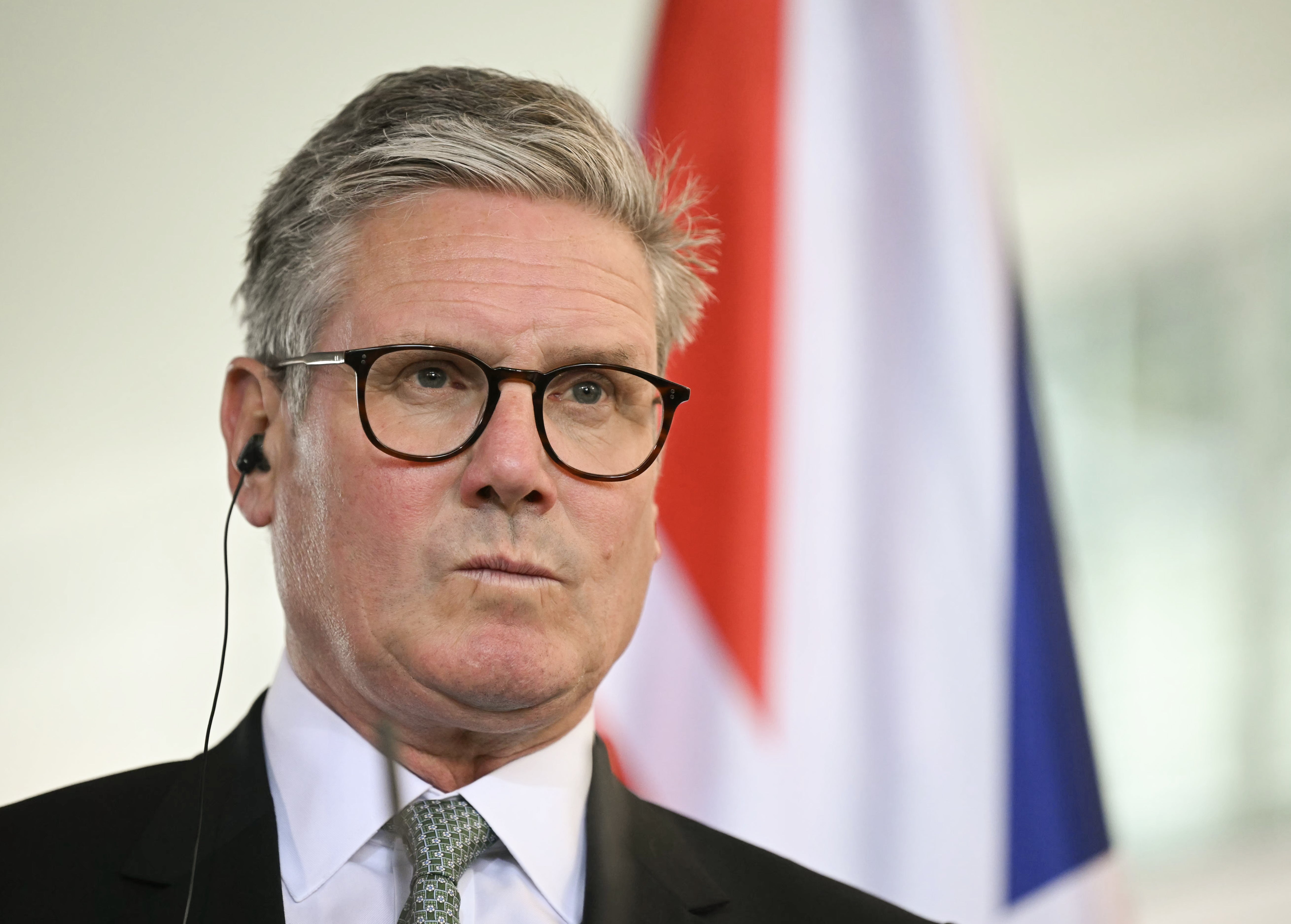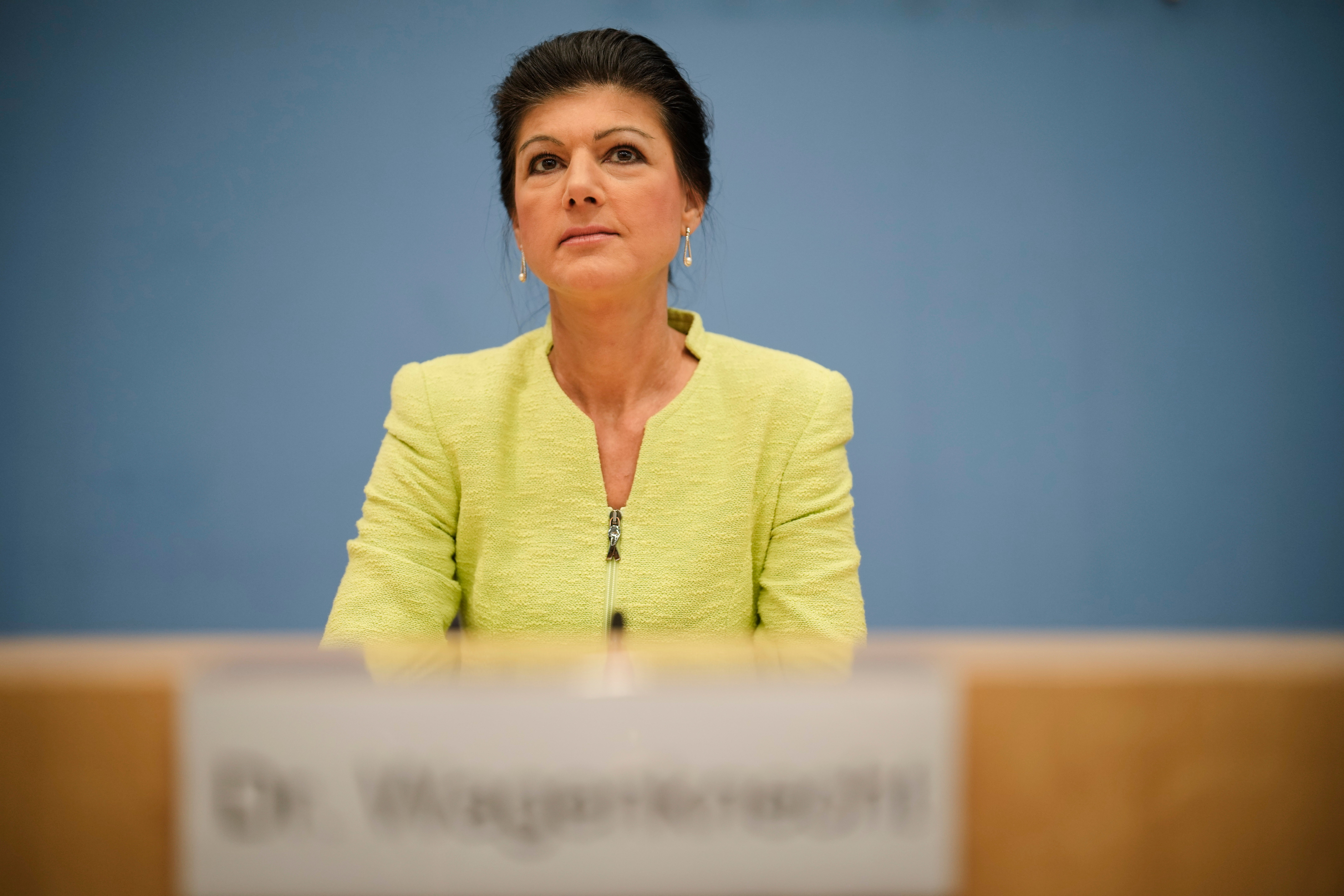The frightening rise of extremism in Germany holds an important lesson for Starmer
German chancellor Olaf Scholz suffered a devastating defeat at the ballot box – with far-right and populist parties now posing the greatest danger to his country, writes John Kampfner. Keir Starmer will need to leave his comfort zone to avoid a similar fate

Whether they like it or not, Germans and Brits are beginning to resemble each other. Traumas at penalty kicks, delayed trains, stodgy food – and a style of dogged political leadership that is struggling to understand the populist threat.
Only a few years ago, it looked very different. The UK was mired in Johnsonian buffoonery, an ugly, arrogant incompetence. It was no wonder that the country from which I had fled (spiritually and – for part of the time – physically) after Brexit was described as the “party island” by my new compatriots in Berlin. Set against that was a German government under Angela Merkel that was trying seriously, if not always successfully, to combat the many problems it was facing: domestically and internationally.
Now Britain is earnest again. In Keir Starmer, it has a prime minister worthy of respect, while in Olaf Scholz, Germany has a chancellor who is floundering.
Scholz has described the elections last Sunday in the eastern regions of Saxony and Thuringia as “bitter”, as well he might. The far-right Alternative fur Deutschland (AfD) won in Thuringia, the first time a far-right party has won a regional election since the Second World War.
The only consolation for Scholz is that the other mainstream parties fared at least as badly. The Greens are suffering from a wider backlash against climate targets. The Free Democrats, the smallest coalition party, garnered less than 1 per cent of the vote in Saxony last Sunday, ending up behind the Animal Protection Party. The knives are out for its leader, Christian Lindner, who has used his time as finance minister to not only strangle growth but undermine his coalition partners at every turn.
As for the opposition Christian Democrats, the CDU, it should be streets ahead, but in its acerbic post-Merkel leader, Friedrich Merz, the party has managed to find someone who alienates voters on both wings.
Into this vacuum, the far-right AfD has spectacularly surged. Close on its heels is the latest insurgent party, BSW, named after its now-ubiquitous leader, Sahra Wagenknecht. This self-styled “Left Conservative” party poses a greater danger. Wagenknecht, a chat show favourite, ostentatiously defies labels. Such is the horseshoe effect of present-day politics, the terms “far left” and “far right” have become almost interchangeable. She combines the artfulness of Giorgia Meloni and the politics of Marine Le Pen. She is (dangerously) pro-Kremlin, anti-immigration, anti-”woke”, while pro-redistribution and in favour of a big welfare state (but only for “true” Germans).

The comparison most relevant to Brits is with Nigel Farage. He and Wagenknecht are both confident but brittle. They represent a new extreme while claiming to be the new mainstream. As Starmer’s team are all too aware, it would not take a seismic shift for Reform UK to oust Labour in dozens of constituencies at the next election. Several MPs are already looking over their shoulders.
The Labour leader argues, again and again, that the best way to counter the populist threat is to sort out the 14 years of Tory mess. Wherever government ministers look, they see an inheritance of chaos and neglect. The report on the Grenfell Tower catastrophe is perhaps the most dramatic but just one of many. The new government needs dramatically to increase the stock and safety of public housing. It needs to turn around the health service and improve infrastructure – and all with a broken budget.
To give him his due, Starmer has barely started. He has ample time to paint a picture of the kind of Britain he wants to see. He must show some passion alongside the pragmatic. Most of all, he needs to find a way of relating to voters, to embrace a more hopeful form of politics. That will force him out of his comfort zone.
Scholz does not have time on his side. He is highly intelligent. But his is the wrong kind of intelligence required of a leader in these fractious times. He has shown he can do deals; he can keep the coalition show on the road (his government is likely to stagger on until the general election due in a year’s time). He understands complex issues. But he is incapable of explaining them.
Nowhere has this deficiency been more apparent than in his approach to Ukraine. In his fabled Zeitenwende (historic turning point) speech in February 2022, days after Russia’s invasion of Ukraine, Scholz showed courage by telling Germans to rethink their queasiness about the use of military strength to defend democracy. He showed leadership. No trimming, no triangulating, but getting ahead of public opinion for the greater good. Opinion polls suggested voters were prepared to back him.
From that point, he frittered away his advantage. Germany became Europe’s staunchest supplier of military (and other) aid to Ukraine, yet rarely got the credit. Some close to Scholz complained about the unfairness of it all, to which the obvious answer was: go change it, go shout from the rooftops about what you’re doing. Ah, that would be too bombastic, came the reply. A similar approach has underpinned his domestic agenda.
Through his dourness, Scholz has alienated. In difficult times, he has failed to take his country with him. This is the lesson that he can teach Starmer, perhaps the only one.






Join our commenting forum
Join thought-provoking conversations, follow other Independent readers and see their replies
Comments